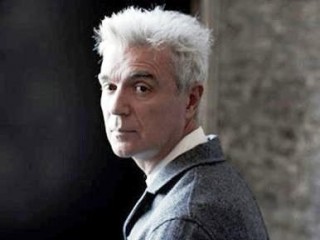
David Byrne biography
Date of birth : 1952-05-14
Date of death : -
Birthplace : Dumbarton, Scotland, UK
Nationality : Scottish-American
Category : Arts and Entertainment
Last modified : 2011-10-24
Credited as : singer, guitarist, Talking Heads
0 votes so far
Later solo releases include Uh-Oh (1992), Grown Backwards (2004), and Everything That Happens Will Happen Today (2008), a collaboration with Brian Eno, who had worked earlier with the Talking Heads and with whom Byrne had released the groundbreaking My Life in the Bush of Ghosts (1981).
Byrne has also composed music for films, most notably for True Stories of 1986--a motion picture he also co-authored and directed--and 1987's The Last Emperor, a Steven Spielberg creation. Despite the fact that The Last Emperor score, co-written with Rhuichi Sakamoto and Cong Su, garnered Byrne an Academy Award, it is his least discussed endeavor. True Stories, on the other hand, was Byrne's project and displayed many of his familiar concerns--about truth, identity, and post-modern alienation. The film and music were criticized by some as voyeuristic and exploitative, while others praised their quirkiness and humor. Years later Byrne's approach took a different track with the score Lead Us Not into Temptation that accompanied the 2003 Scottish film Young Adam. Departing from Afro-Latin and Caribbean influences, Byrne created, according to All Music Guide reviewer Sean Westergaard, music that "often echoes the gloom and dankness of the Scottish climate."
Byrne's artistic activities are myriad, as displayed by his musical interests. His own albums and those he produced for the Luaka Bop label offer bold amalgamations of African, Latin, Middle Eastern, East Indian, Japanese, rock, and classical music. Maybe Byrne's goal is not, as former bandmate Tina Weymouth once said of the Talking Heads, to change the face of music; his aim is perhaps to change the face of contemporary American culture.
















